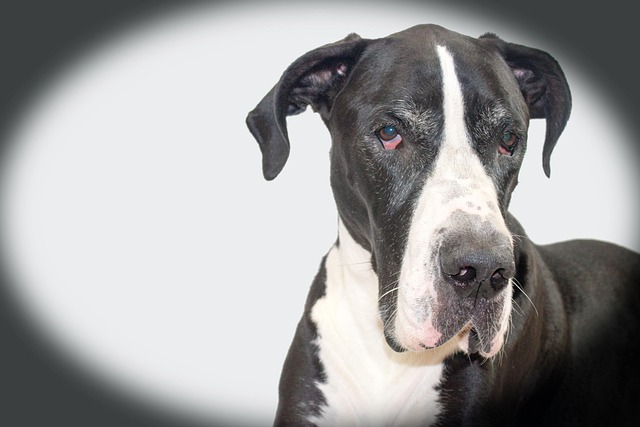
Will pumpkin help a dog pass obstruction?
When a dog that is usually lively and active suddenly loses its appetite, becomes listless, or even vomits frequently, every pet owner will be worried that it is intestinal obstruction, a "health killer".
Having a golden retriever at home is like having a perpetually enthusiastic little sun. Their bright smiles, lively eyes, and tails that wag like rattles can always dispel the gloom in life and bring endless warmth and joy. However, although golden retrievers seem full of vitality, like all dogs, they also face some health and behavioral troubles. Understanding these common problems is not only a responsibility for the health of golden retrievers but also a manifestation of the deep love that owners give them. So, what exactly are the most common problems that golden retrievers encounter?
Hip dysplasia is a common skeletal problem in golden retrievers. Golden retrievers are large - sized dogs with a relatively fast growth rate, which subjects their hip joints to great pressure. If, during the puppy stage, there is unbalanced nutrition, an improper calcium - to - phosphorus ratio, or excessive exercise with inappropriate exercise methods, the normal development of the hip joints can be affected. As the dog ages, the problem of hip dysplasia gradually becomes apparent. A golden retriever with this condition will show abnormal gaits when walking, such as limping, having difficulty going up and down stairs, and appearing uncoordinated when running. In severe cases, the dog may reduce its activities due to pain and even experience muscle atrophy. To prevent hip dysplasia, during the puppy stage of a golden retriever, pay attention to a reasonable diet. Choose high - quality, nutritionally balanced dog food and avoid over - supplementing calcium. At the same time, control the amount of exercise and avoid having the puppy engage in overly strenuous activities, such as long - distance running and jumping.
Skin diseases are also one of the problems that golden retrievers are prone to. Golden retrievers have thick fur, creating a relatively warm and humid environment for the skin, which is precisely conducive to the growth of bacteria, fungi, and mites. Eczema is a common skin disease in golden retrievers, manifested as redness, papules, and blisters on the skin, accompanied by itching. The dog will frequently scratch and lick the affected area, leading to skin damage, infection, and exacerbating the condition. Allergic dermatitis is also a common skin problem that plagues golden retrievers. They may be allergic to pollen, dust, certain foods, etc., triggering symptoms such as skin itching, redness, and hair loss. To prevent skin diseases, bathe the golden retriever regularly to keep the skin clean, but be careful not to over - bathe, as this can damage the natural skin barrier. Select pet - specific bath products suitable for the golden retriever's skin type and thoroughly dry the fur after bathing. Also, regularly comb the fur to promote skin blood circulation and promptly detect skin problems.

Ear infections are also relatively common in golden retrievers. The ears of golden retrievers are drooping, and the air circulation in the ear canals is poor, making it easy for earwax and moisture to accumulate. When earwax and moisture mix, they provide a breeding ground for the growth of bacteria and fungi, thus triggering ear infections. When a golden retriever has an ear infection, it will show symptoms such as frequent head - shaking and ear - scratching. The ears may emit an unpleasant odor, and there will be black or brown secretions in the ear canals. If not treated in time, ear infections can affect the dog's hearing. Owners should regularly check the ears of golden retrievers, preferably once or twice a week. Use pet - specific ear cleaning solutions to regularly clean the ear canals and keep the ears clean and dry. When symptoms of an ear infection are detected in the dog, take it to the veterinarian promptly for appropriate treatment.
Cancer is also one of the serious health problems that golden retrievers face. Due to factors such as the genetic characteristics of golden retrievers and their living environment, their probability of getting cancer is relatively high. Lymphoma is one of the common types of cancer in golden retrievers, mainly manifested by swollen lymph nodes. The dog may experience general symptoms such as listlessness, loss of appetite, and weight loss. Bone cancer is also a type of cancer that golden retrievers are prone to. The affected area will experience pain and lameness, and in severe cases, it will affect the normal function of the bones. To detect cancer early, owners should regularly take golden retrievers to the pet hospital for physical examinations, including blood routine, biochemical tests, X - rays, ultrasounds, and other examination items. At the same time, pay attention to observing the dog's daily behavior and physical condition, and seek medical attention promptly if any abnormalities are found.
In addition to health problems, golden retrievers may also face some behavioral problems, among which separation anxiety is relatively common. Golden retrievers have a deep emotional dependence on their owners. When the owner leaves home, they may feel lonely, fearful, and uneasy, thus showing symptoms of separation anxiety, such as excessive barking, destroying items, and defecating and urinating indiscriminately. To alleviate the separation anxiety of golden retrievers, owners can conduct appropriate separation training for the dogs from an early age. Before leaving home, do not show excessive reluctance or anxiety, so as not to pass on such emotions to the dog. Gradually extend the time of leaving home to allow the dog to slowly adapt to the state of the owner being away. At the same time, provide the dog with some interesting toys and a comfortable environment so that they have something to do when the owner is away and reduce their anxiety.
Although golden retrievers bring us endless joy and companionship, they also face various problems. As owners, we should earnestly understand their needs, pay attention to their health and behavior, promptly detect problems, and take effective measures. Each golden retriever is unique, and their health and happiness are in our hands. Let us accompany them through every wonderful moment with full love and patience, and let them thrive under our care and become the warmest and most loyal partners in our lives.

When a dog that is usually lively and active suddenly loses its appetite, becomes listless, or even vomits frequently, every pet owner will be worried that it is intestinal obstruction, a "health killer".

When we caress the furry ears of dogs and enjoy the warm moments of cuddling up with each other, our hearts are filled with happiness.

When we see the dog frequently shaking its head, scratching its ears, and even having red and swollen ears with an unpleasant smell,

When we pick up the scissors and prepare to trim the hair of our furry babies at home, we are full of expectations and a little nervous. Looking at the trusting eyes of the dogs, we all hope to create a comfortable and beautiful look for them.

When the dog was found squatting in the corner, struggling hard but unable to excrete feces, its lively eyes were filled with discomfort and helplessness,

Watching the dog lying weakly on the ground due to diarrhea and vomiting, with its originally lively eyes losing their luster, every owner's heart feels as if it's being tightly gripped.